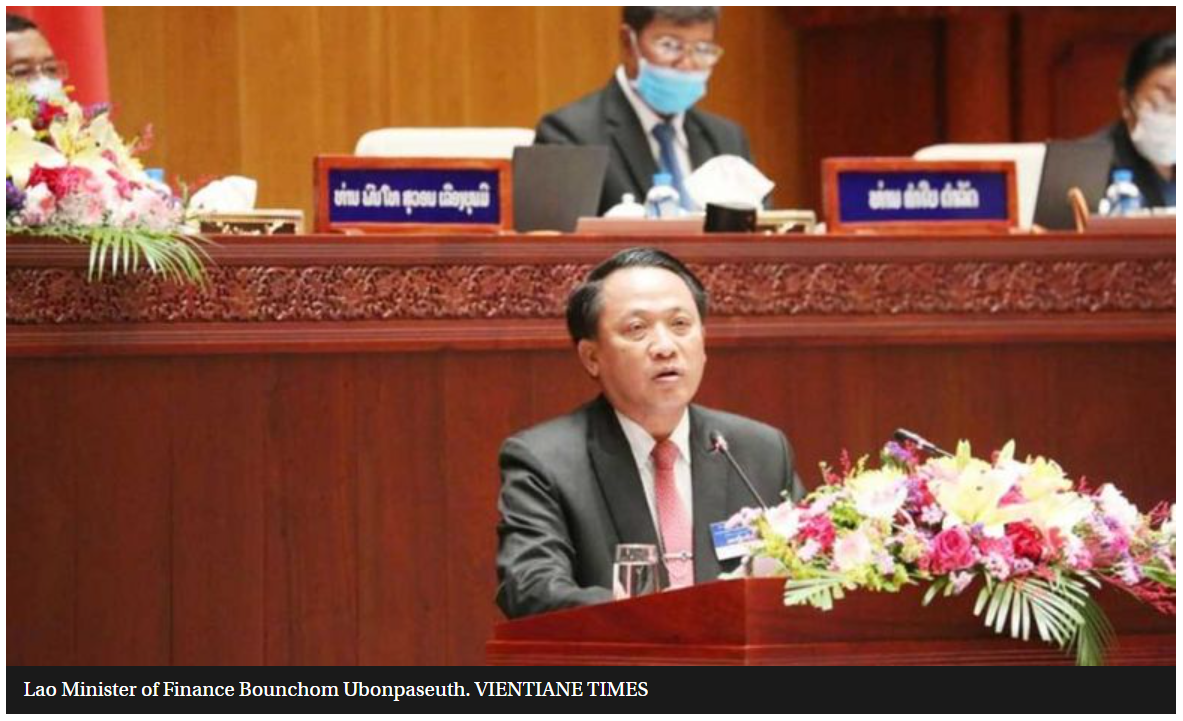Laos revises VAT law to promote investment, MSMEs
The Lao Ministry of Finance, on behalf of the government, has asked the National Assembly (NA) to consider changes to the Law on Value-Added Tax (VAT) to help address the country’s financial difficulties.
The amendments have been recommended under the new national agenda on the resolution of financial issues currently being debated at an extraordinary session of the NA.
Draft revisions to four laws in relation to the national agenda are being proposed, namely the laws on tax, income tax, excise tax, and VAT, and were presented by Minister of Finance Bounchom Ubonpaseuth on August 7 at a session chaired by NA vice-president Chaleun Yiapaoher.
Bounchom told NA members that the revision of some articles of the finance laws aimed to bolster business operations and ensure that taxes were paid in compliance with these laws.
“The amendment of laws, especially the VAT law, will enable entrepreneurs to contribute to the VAT system and raise the purchasing power of consumers. It will also clarify the strategic implementation of the VAT law with a focus on the energy and mines sector rather than other fields,” he said.
The revisions are also aimed at promoting micro-, small- and medium-sized enterprises (MSMEs) to increase the number of small businesses participating in the VAT system.
Among the revised 21 articles in the four laws, 12 are contained in the Law on VAT. The changes to the articles in the four laws will play a fundamental role in ensuring positive results in financial administrative reform as well as encouraging more domestic and foreign investment.
During the session, NA members made comments on the revisions prior to completion of the drafts and approval of the amendments.
The Law on VAT defines principles, regulations, methods and measures in relation to value-added tax, which is paid by businesses and consumers as a contribution to the state budget.
Alongside bolstering the national agenda to strengthen socio-economic development and integration with regional and international communities, the law aims to promote production and business operations, and the circulation of goods and services.
VIENTIANE TIMES/ASIA NEWS NETWORK


 English
English




